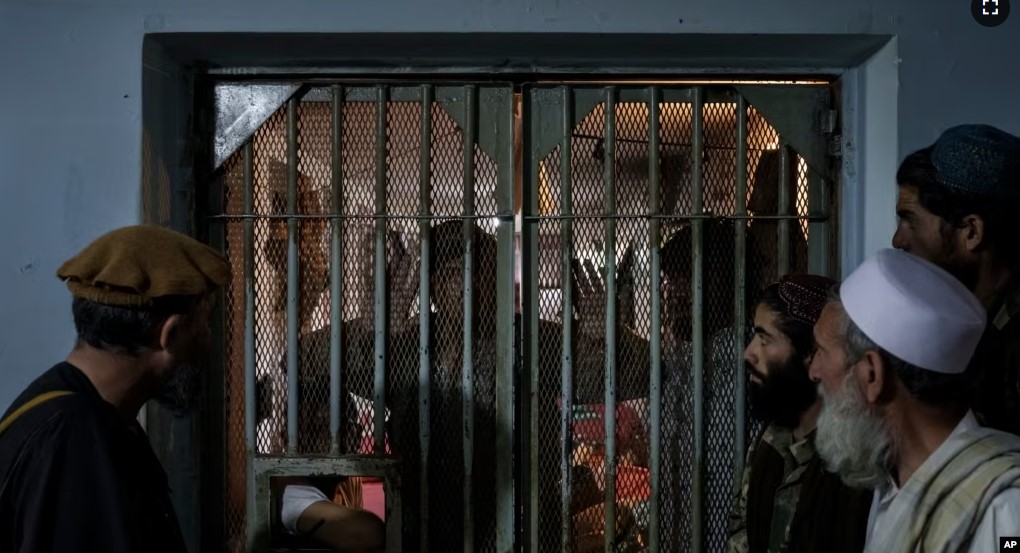0%

Taliban fighter talk to recently arrested prisoners in the Pul-e-Charkhi prison in Kabul, Afghanistan/File Photo: AP
KABUL: Less than two years after releasing all prisoners held by the previous Afghan government, including suspected terrorists, the Taliban are rapidly refilling prisons with new inmates.
Over the past 18 months, de facto Taliban authorities detained more than 29,000 individuals on various charges such as theft, kidnapping, murder and moral crimes according to country’s top prison official.
“We have released some 15,000 inmates,” Mohammad Yusuf Mistari, the Taliban’s director of prisons, told VOA in WhatsApp messages. “Currently, there are approximately 14,000 inmates in the Islamic Emirate’s jails.”
Among the prisoners, up to 1,100 are women.
Taliban officials claim they have no political prisoners and that all the prisoners are held on criminal charges — a claim not confirmed by independent organizations.
But groups like Human Rights watch say the Taliban have opted for killing criminals associated with armed opposition groups — Islamic State and other Afghan militias that have increasingly posed serious security threats to the fledging Islamist regime —instead of keeping them in jails.
Under the Islamic Emirate’s strict interpretation of Sharia, acts such as drinking alcohol or extramarital relationships are considered criminal and carry severe penalties, while homosexuality and sodomy are punishable by death.
Since November, the Taliban have restarted public displays of punishment. Thieves have had their hands chopped off, adulterers have been flogged, and those found guilty of murder have been shot and killed in front of hundreds of male spectators.
More than 100 men and women have been publicly whipped, and at least two men have been executed so far, according to the U.N. Assistance Mission in Afghanistan (UNAMA), which monitors human rights in the country.
“Such barbaric punishments — often carried out against persons for activities that should not even be considered crimes, such as listening to music — constitute torture or cruel, inhuman or degrading treatment, and are prohibited under international law,” Patricia Gossman, associate Asia director at Human Rights Watch, told VOA.
Redoing torture
Various forms of torture have been widely practiced at formal and informal detention centers and jails in Afghanistan, according to UNAMA and various rights groups.
Hundreds of Taliban fighters reportedly died in extremely brutal detention conditions in late 2001 and early 2002 during U.S.-led military campaigns that toppled the Taliban with the help of local Afghan militias, according to reports by the New York Times and Physicians for Human Rights.
Torture of detainees was also prevalent under the former Afghan government, which incarcerated more than 30,000 individuals, a large number of whom were alleged Taliban insurgents, according to U.N. reports dating back to at least 2011.
(VOA)